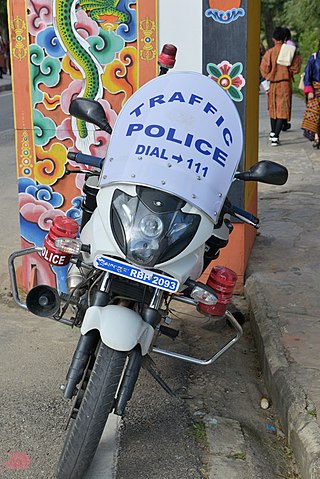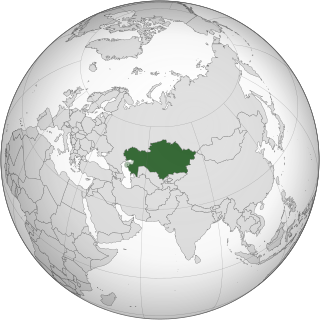 Location of Bhutan (dark green) | |
| Medicinal | Illegal |
|---|---|
| Recreational | Illegal |
Cannabis in Bhutan is illegal, but grows prolifically in the country and has multiple traditional uses, such as feeding pigs and producing textiles. [1]
 Location of Bhutan (dark green) | |
| Medicinal | Illegal |
|---|---|
| Recreational | Illegal |
Cannabis in Bhutan is illegal, but grows prolifically in the country and has multiple traditional uses, such as feeding pigs and producing textiles. [1]
Awareness of cannabis as a drug seems limited in Bhutan, with some authorities tracing its arrival to the legalization of television in 1999; prior to that point, cannabis was mostly thought of as a fodder to fatten pigs. [2] [3] The International Narcotics Control Board noted in 2002 that Bhutan had no history of cannabis abuse, but the government had recently raised concerns about drug abuse, particularly by the young, and taken an interest in eradicating wild cannabis and counseling drug users. [4]
Bhutan's first arrest for drug abuse occurred in 1989 in Gelephu, where a man was arrested for abusing cannabis. [5]
In 2010 the Bhutanese government seized 4 kg of cannabis; in 2011 this increased to 75 kg. [6]
Though the wild nettle is the more common source of traditional textiles, cannabis has also been used for its fibre, and is called kenam in the Dzongkha language. [7]

The war on drugs is the policy of a global campaign, led by the United States federal government, of drug prohibition, military aid, and military intervention, with the aim of reducing the illegal drug trade in the United States. The initiative includes a set of drug policies that are intended to discourage the production, distribution, and consumption of psychoactive drugs that the participating governments, through United Nations treaties, have made illegal.

The Single Convention on Narcotic Drugs, 1961 is a United Nations treaty that controls activities of specific narcotic drugs and lays down a system of regulations for their medical and scientific uses; it also establishes the International Narcotics Control Board.
The International Narcotics Control Board (INCB) is an independent treaty body, one of the four treaty-mandated bodies under international drug control law.
The expression International Opium Convention refers either to the first International Opium Convention signed at The Hague in 1912, or to the second International Opium Convention signed at Geneva in 1925.
A drug policy is the policy regarding the control and regulation of psychoactive substances, particularly those that are addictive or cause physical and mental dependence. While drug policies are generally implemented by governments, entities at all levels may have specific policies related to drugs.

Bhutan has a low crime rate. Incidents of petty crime are occasionally reported in the country. Violent crime is very uncommon. Some cases of drug abuse are reported; alcohol abuse is a problem. But in general, drug trafficking is low. The most serious threat to Bhutan's security is terrorism by different terrorist groups from neighboring countries illegally camped in the nation.

The Convention on Psychotropic Substances of 1971 is a United Nations treaty designed to control psychoactive drugs such as amphetamine-type stimulants, barbiturates, benzodiazepines, and psychedelics signed in Vienna, Austria on 21 February 1971. The Single Convention on Narcotic Drugs of 1961 did not ban the many newly discovered psychotropics, since its scope was limited to drugs with cannabis, coca and opium-like effects.
Health in Bhutan is one of the government's highest priorities in its scheme of development and modernization. Health and related issues are overseen by the Ministry of Health, itself represented on the executive Lhengye Zhungtshog (cabinet) by the Minister of Health. As a component of Gross National Happiness, affordable and accessible health care is central to the public policy of Bhutan.

Crime in the Maldives ranks from low to moderate, but crime rates in the country have increased significantly in recent years. Incidents of theft on beaches or in hotels do occur. Juvenile delinquency is a growing problem in the Maldives. According to the data available from the Ministry of Defence and National Security, there has been an increase in petty crime in the country. In 1992, 169 cases of petty crime were reported, while the number was 462 in 1996. The number of sentenced persons under the age of 19 also increased from 391 in 1988 to 512 in 1998. Fraud examiner Peter Lilley in his book Dirty Dealing writes that money laundering is not a significant problem in the Maldives.

Cannabis in Papua New Guinea is illegal, but the nation is a significant producer and consumer of cannabis. Cannabis is sometimes called spak brus in local parlance.

Cannabis is illegal in Nigeria, yet the country is a major source of West African-grown cannabis, and ranked the world's third highest consumer of cannabis.

Cannabis has been illegal in Nepal since 1976, but the country has a long history of use of cannabis for Ayurvedic medicine, intoxicant and misconception as a holy offering for Lord Shiva and continues to produce cannabis illicitly.

Cannabis has been cultivated in Japan since the Jōmon period of Japanese prehistory approximately six to ten thousand years ago. As one of the earliest cultivated plants in Japan, cannabis hemp was an important source of plant fiber used to produce clothing, cordage, and items for Shinto rituals, among numerous other uses. Hemp remained ubiquitous for its fabric and as a foodstuff for much of Japanese history, before cotton emerged as the country's primary fiber crop amid industrialization during the Meiji period. Following the conclusion of the Second World War and subsequent occupation of Japan, a prohibition on cannabis possession and production was enacted with the passing of the Cannabis Control Law.
Cannabis is illegal in Benin. The country is not a major drug producer or consumer, but increasingly serves as a transshipment point for drugs produced elsewhere. Cannabis is the only drug produced locally in Benin, though mostly on a small scale.
Cannabis in Lesotho is illegal for any use, but largely tolerated. Cannabis is widely produced in the country, being the nation's most significant cash-crop. In the 2000s it was estimated that 70% of the cannabis in South Africa originated in Lesotho. In 2017 Lesotho became the first African nation to grant a license for the cultivation of medical cannabis.
Cannabis in Mauritania is illegal, but the country serves as a major transit point for Moroccan cannabis en route to Europe.

Cannabis in Kazakhstan is illegal.

Cannabis in Brunei is illegal and can be punishable by caning or the death penalty. Brunei Darussalam's legislation is controlled by its sultan and is based on the country's Sharia-Islamic beliefs. In accordance with these laws, Brunei native, Lam Ming Hwa, received the death sentence in 2004 and a Malaysian native, Muhammad Mustaqim Mustofa bin Abdullah, was sentenced to death in 2017.

Cannabis in Burkina Faso is illegal. Burkina Faso's tropical environment makes it perfect for cannabis growth. However, cannabis rates among adolescents are low, as most cannabis grown in Burkina Faso is exported to countries where cannibis cultivation is hindered by climate or legality.
The removal of cannabis and cannabis resin from Schedule IV of the Single Convention on narcotic drugs, 1961 is a change in international law that took place in 2021, on the basis of a scientific assessment by the World Health Organization.